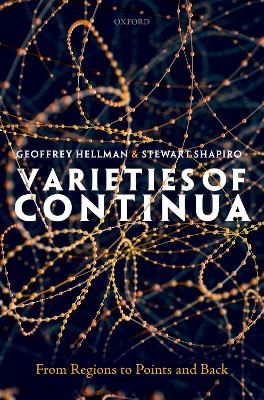
Varieties of Continua
Oxford University Press (Verlag)
978-0-19-871274-9 (ISBN)
Varieties of Continua explores the development of the idea of the continuous. Hellman and Shapiro begin with two historical episodes. The first is the remarkably rapid transition in the course of the nineteenth century from the ancient Aristotelian view, that a true continuum cannot be composed of points, to the now standard, point-based frameworks for analysis and geometry found in modern mainstream mathematics (stemming from the work of Bolzano, Cauchy, Weierstrass, Dedekind, Cantor, et al.). The second is the mid-tolate-twentieth century revival of pre-limit methods in analysis and geometry using infinitesimals including non-standard analysis (due to Abraham Robinson), and the more radical smooth infinitesimal analysis that uses intuitionistic logic. Hellman and Shapiro present a systematic comparison of these and related alternatives (including constructivist and predicative conceptions), weighing various trade-offs, helping articulate a modern pluralist perspective, and articulate a modern pluralist perspective on continuity. The main creative work of the book is the development of rigorous regions-based theories of classical continua, including Euclidean and non-Euclidean geometries, that are mathematically equivalent (inter-reducible) to the currently standard, point-based accounts in mainstream mathematics.
Geoffrey Hellman received his BA and PhD from Harvard (1973). Having published widely in analytic philosophy and philosophy of science, he has, since the 1980s, concentrated on philosophy of quantum mechanics and philosophy and foundations of mathematics. Following the lead of his adviser, Hilary Putnam, Hellman has developed modal-structural interpretations of mathematical theories, including number theory, analysis, and set theory. He has also worked on predicative foundations of arithmetic (with Solomon Feferman) and pluralism in mathematics (with J.L. Bell). In 2007 he was elected as a fellow of the American Academy of Arts and Sciences. Stewart Shapiro received an MA in mathematics in 1975, and a PhD in philosophy in 1978, both from the State University of New York at Buffalo. He is currently the O'Donnell Professor of Philosophy at The Ohio State University, and he serves as Distinguished Visiting Professor at the University of Connecticut, and as Professorial Fellow at the University of Oslo. He has contributed to the philosophy of mathematics, philosophy of language, logic, and philosophy of logic, publishing monographs on higher-order logic, structuralism, vagueness, and pluralism in logic.
1: The Old Orthodoxy (Aristotle) vs the New Orthodoxy (Dedekind-Cantor)
2: The classical continuum without points
3: Aristotelian and Predicative Continua
4: Real numbers on an Aristotelian continuum
5: Regions-based Two Dimensional Continua: The Euclidean Case
6: Non-Euclidean Extensions
7: The matter of points
8: Scorecard
| Erscheinungsdatum | 29.03.2018 |
|---|---|
| Verlagsort | Oxford |
| Sprache | englisch |
| Maße | 164 x 240 mm |
| Gewicht | 492 g |
| Themenwelt | Geisteswissenschaften ► Philosophie ► Geschichte der Philosophie |
| Geisteswissenschaften ► Philosophie ► Metaphysik / Ontologie | |
| Geisteswissenschaften ► Philosophie ► Philosophie der Neuzeit | |
| Mathematik / Informatik ► Mathematik | |
| ISBN-10 | 0-19-871274-X / 019871274X |
| ISBN-13 | 978-0-19-871274-9 / 9780198712749 |
| Zustand | Neuware |
| Haben Sie eine Frage zum Produkt? |
aus dem Bereich


